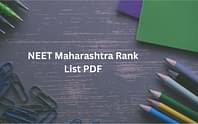
ITI Horticulture syllabus is specifically designed to equip students with job-related professional knowledge and employability skills to set up their careers at a young age. Using horticulture, they can create seeds, grow and maintain the production of veggies, fruits, and decorative plants, and manufacture and sell plant goods. It is an applied science that deals with the production, growth, and commercialisation of plants. Prospective students can download the ITI Horticulture syllabus PDF using the link provided in the following table to refer to the detailed topics and subjects covered in this trade:
One of the well-liked vocational programs offered across the country by the network of ITIs is "horticulture" under the Craftsman Training Scheme (CTS). While the Employability Skills (Core area) transmit necessary basic abilities and expertise as well as life skills, the Trade Theory & Practical (Domain area) teaches professional knowledge and competencies to students. After this, they receive the internationally recognised National Trade Certificate (NTC) from the Directorate General of Training (DGT) upon completion of the training course. In this article, we will cover a detailed syllabus for ITI Horticulture, semester-wise subjects, course structure, etc.
Semester-wise ITI Horticulture Syllabus: Theory & Practical Trades
As discussed, this trade's course duration is one year, which is divided into two six-month semesters. Learners are exposed to a wide range of agricultural topics during instruction and trade, including the production of non-food crops like grass and decorative trees and plants, as well as fruits, sprouts, algae, seaweeds, etc. The following is a discussion of the semester-wise ITI Horticulture syllabus for both theoretical and practical trades.
First Semester Syllabus for ITI Horticulture
The table below outlines the 1st-semester ITI Horticulture syllabus for both theory and practical trades:
ITI Horticulture Trade Theory Subject | ITI Horticulture Trade Practical Subject |
|---|---|
|
|
|
|
|
|
|
|
|
|
Second Semester Syllabus for ITI Horticulture
The table below summarises the 2nd-semester ITI Horticulture syllabus for both theory and practical trades:
ITI Horticulture Trade Theory Subject | ITI Horticulture Trade Practical Subject |
|---|---|
|
|
|
|
|
|
|
|
|
|
|
|
|
|
|
|
|
|
ITI Horticulture Course Structure
As discussed, ITI Horticulture is a one-year course that provides students with professional knowledge and employability skills to start their careers at an early stage across numerous related industries. The following table highlights the distribution of training hours across primarily three program or course elements for the same duration:
ITI Horticulture Course Element | Notional Training Hours (NTH) |
|---|---|
Professional Skill (Trade Practical) | 1,200 |
Professional Knowledge (Trade Theory) | 240 |
Employability Skills | 160 |
Total | 1,600 |
ITI Horticulture Trade-Specific Learning Outcomes
The evaluation process will follow the assessment criteria, and learning outcomes represent the entirety of a student's acquired skills during the program. Considering the Horticulture ITI syllabus, the following are brief learning outcomes of the program which students can refer to:
- Make use of the production of seeds, manufacturing, and packaging strategies.
- Organise and arrange the horticultural scope, plant life cycles, and exposure to flowers, fruits, and crops.
- Create and implement various garden designs and layouts.
- Carry out mushroom farming and betel vine cultivation.
- Set up agrometeorological equipment, examine metrological data, and document the results.
- Recognise, pick, and care for various farm power equipment.
- Determine, get ready, and use biofertilizers.
- Assess and choose various plant hormones and vegetative propagation techniques.
- Utilise the methods for growing various spices and veggies.
- Sort fruits and vegetables according to their edible sections and seasons.
- Use proliferation methods like layering, grafting, cutting, budding, etc.
- Use pest management to keep horticultural crop pests and diseases under control.
- In the field, employ an Integrated Nutrient Management System (INMS).
We hope the above article has provided students with adequate ITI Horticulture syllabus and subject understanding. Given that India is an agricultural nation with a wealth of employment prospects, a trade like horticulture is significant from a job perspective. Students who are passionate about horticulture and its equivalent fields can further pursue educational options, such as diploma and degree programs.
For additional details about the Horticulture ITI syllabus, keep checking CollegeDekho ! You may also fill out the Common Application Form (CAF) or call our assistance line toll-free at 1800-572-9877 if you have any questions. To get your enquiries resolved by our specialists, you may get in contact with us via our QnA section .















Similar Articles
Odisha ITI Admission 2025: Dates, Application Form, Eligibility, Fees, Cutoff, Counselling
Haryana ITI Admission 2025: Dates, Application Form, Eligibility, Merit List, Seat Allotment, Counselling
Pondicherry ITI Admissions 2025: Dates, Application Form, Eligibility, Merit List, Selection
Delhi ITI Admission 2025: Registration, Merit List, Choice Filling, Seat Allotment, Colleges
Uttarakhand ITI Admission 2025: Dates, Application Form, Eligibility, Merit List, Seat Allotment, Trades
Tamil Nadu ITI Admission 2025: Registration, Eligibility, Counselling, Documents